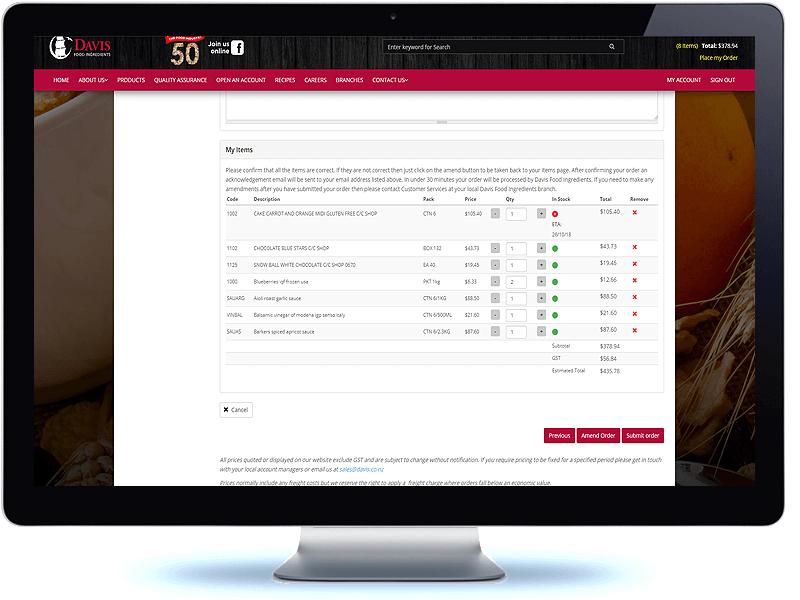E-commerce continues to be one of the fastest growing areas in the online space. There are many different options that can make the purchasing decision complex.
To help with your decision making this article identifies the key differences between a variety of platforms.
Different types of E-commerce platform
It is important to recognise the two key types of e-commerce platforms. Selecting between these makes the following decisions easier to determine.
Open Source e-commerce: This type of platform offers by far the most flexibility and can be tailored to suit the needs of your business. Open source eCommerce solutions are owned by you. Once the project is completed the code that delivers the functionality associated with your cart belongs 100% to you. Open source e-commerce engines are generally developed for you by an agency and are hosted along with your website.
SaaS or proprietary e-commerce engines are services that you subscribe to use and you never own the solution. The functionality is common and is rarely changed and the engine itself is usually centrally hosted. These types of solutions are used in platforms like Shopify. Sales data is stored in central locations and is not always freely available.
We shared our thoughts on the pros and cons of proprietary versus Open source a little while ago in this blog article
Selecting your E-commerce platform
We firmly recommend eliminating the solutions that hook you into a solution with minimal opportunity to update and change. This includes the SaaS and proprietary solutions, however also impacts some open source carts.
A well designed and developed website is an opportunity to showcase your business, establishing a storefront that aligns with your business and supports your business process. Open source solutions are great for achieving this.
The key benefits of a well-selected e-commerce solution include:
- You have your own store tailored to your business needs
- The solution will align with your brand, customer base and business ethos
- You can tailor the user experience to deliver a checkout experience that works for you
- E-commerce platform can be integrated with the majority of accounting systems
A website with an effective cart allows you to promote your business to your various market segments using a variety of means like Social Media, marketing, Google AdWords, Remarketing and display ads. To be successful your e-commerce solution needs to support the market you are targeting.
B2C versus B2B
Your business model will dictate the type of functionality you require your ecommerce engine to deliver. There are two key channels that describe the interaction your website has with its customer base.
Business to Business (b2B)
B2B e-commerce engines often support more customised functionality. There are a couple of key differentiators for a B2B ecommerce website:
- You generally know your customer base (Distributors, Agents, Resellers etc)
- Functionality to be supported includes:
- Custom pricing
- Multiple logins for the same customer
- Flexible volume based discounts
- Multiple payment methods – on account, credit card, cash
- Ability to control access and payment methods
Business to Consumer (B2C)
These types of e-commerce websites are your traditional online retail stores. Generally, these sites are in very competitive markets, they need to standout, offer slick interfaces and support the needs of your business.
Key features include
- Multiple payment methods
- Support discounts
- Support complex shipping algorithms
- Support products with multiple attributes (size, colour, pattern etc)
Platform choice
In New Zealand, there are a number of different options for your eCommerce engine. Assuming we have agreed to use open source there are two clear leaders worthy of consideration.
Magento2
Magento2 is a fully featured ecommerce engine. There are templates available and there are developers who will customise this platform to meet your needs. The challenge with Magento is that a template delivers all functionality in a complex bundle. You will have functionality that you will never use and the complexity associated with setting it up is not straightforward, the site itself will look like many others.
A customised Magento site, while addressing the concerns associated with a templated Magento site, will be expensive to deliver. Magento is a complex system that takes considerable effort to tailor.
Woocommerce with WordPress
Not ideal, WordPress itself has morphed from a Blog platform to an anything goes platform without consideration for the underlying architecture of the platform.
While the combination is popular, there are significant limitations in terms of usability and function for all but the smallest of online retail stores.
Ubercart with Drupal
At Koda, we definitely have a bias and it is not a position that we have developed lightly. Over many years working on a variety of different ecommerce platforms we have selected Ubercart coupled with one of the most flexible open source content management systems available – Drupal.
This combination allows a website to be designed and delivered that meets your business needs, supporting all of the functionality available in all other eCommerce platforms. Drupal and Ubercart deliver an outstanding solution at an affordable price.
Ideal for both B2B e-commerce and B2C e-commerce solutions.
Drupal is scalable and fully customisable. We have developed websites on this platform that transact millions of dollars of sales each year. We are 100% confident in the flexibility, function and affordability of this solution and most importantly, you own it 100%.

The Decision
From our perspective, there is only one type of e-commerce store to be considered – Open Source
When considering your open source options, WordPress with Woocommerce is limited in function and a customised Magento2 site is going to be expensive to implement.
For us, the most likely candidate is Drupal with Ubercart. This platform delivers a killer online e-commerce platform that will support all of your business requirements.
Call us today to find out how we can help you get online in your custom Drupal/Ubercart online store!
